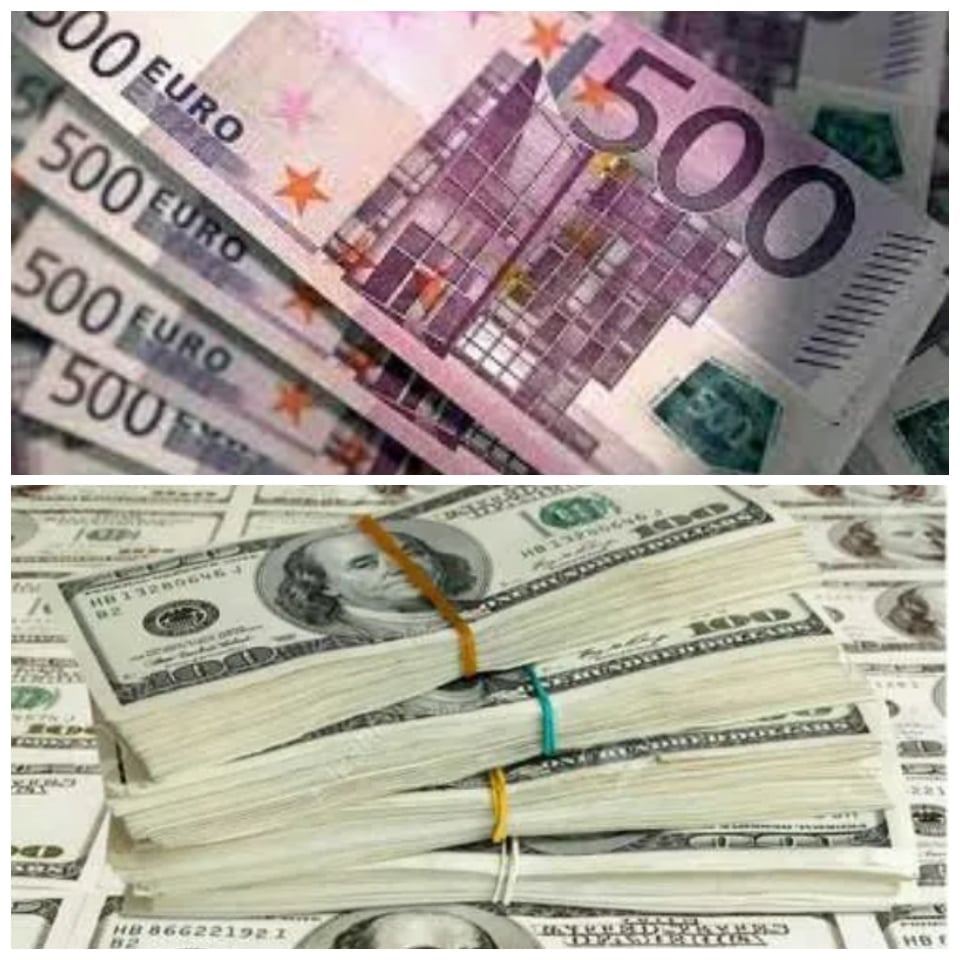The exchange rate between the United States Dollar (USD) and the Nigerian Naira (₦) continues to fluctuate across the country’s parallel markets, reflecting ongoing volatility in Nigeria’s foreign exchange sector. As of Saturday, October 18, 2025, findings from currency traders and exchange monitoring platforms show that the black market Dollar to Naira exchange rate is currently averaging ₦1,485 to ₦1,505 per US $1, depending on location and transaction volume.
Current Black Market Rate
According to data obtained from Aboki Forex and Aboki Pure, two platforms that track Nigeria’s parallel market performance, traders in Lagos, Abuja, Kano, and Port Harcourt are selling the U.S. dollar between ₦1,485 and ₦1,505, while buying rates hover around ₦1,470 per US $1. In major exchange hubs such as Allen Avenue (Ikeja), Abuja’s Wuse Zone 4, and Kano’s Bureau de Change district, traders reported brisk trading as importers and travelers continued to seek hard currency outside official banking channels.
We gathered that despite a slight decline in market liquidity, the parallel market remains the primary source of foreign exchange for many Nigerians, as commercial banks continue to experience tight supply from the Central Bank of Nigeria (CBN). Official CBN and I&E Window Rates At the official Investors and Exporters (I&E) window, the Naira traded at an average of ₦1,235 to ₦1,250 per US $1 on Friday, according to figures from the FMDQ Exchange This means the gap between the official rate and the parallel market rate has widened to nearly ₦270, reflecting renewed pressure on the local currency amid rising import demand and declining dollar inflows
Financial analysts say the widening disparity continues to encourage currency speculation and round-tripping among traders, further straining Nigeria’s foreign exchange reserves. Why the Naira Keeps Falling Experts attribute the Naira’s sustained weakness to several key factors:
Low Dollar Supply: Nigeria’s foreign reserves have declined in recent months due to lower oil export proceeds and sluggish inflows from foreign portfolio investors. High Import Demand: Heavy dependence on imported goods — especially refined petroleum, food, and raw materials — keeps daily dollar demand high. Monetary Policy Uncertainty: Frequent policy adjustments by the Central Bank have led to market confusion, deterring foreign investors from bringing fresh inflows. Speculative Trading: Currency traders continue to take advantage of the wide gap between the official and parallel markets to make profits through arbitrage.
Reactions from Market Analysts
A Lagos-based Bureau de Change operator told Ejes Gist News that dollar demand spiked during the week as importers rushed to pay for goods ahead of year-end shipments. “Dollar demand is very high right now. Many people are buying for travel and import payments. The supply we get from our sources is not enough, so prices keep moving up daily,” he said. Financial consultant Dr. Olatunde Adegoke explained that unless the CBN implements aggressive supply reforms or secures new foreign inflows, the Naira may remain under sustained pressure in the months ahead. “The current system depends on imported dollars from the diaspora and exporters. If that flow weakens, the black market will continue to dictate actual pricing,” Adegoke said. Impact on Businesses and Consumers The rising exchange rate has triggered fresh concerns among importers, manufacturers, and ordinary Nigerians.
Importers say rising dollar costs are pushing up the prices of goods and raw materials. Manufacturers warn that local production may suffer if the cost of imported components keeps increasing. Consumers, already grappling with inflation above 30%, are expected to face further hikes in food and commodity prices. A business owner in Onitsha told Ejes Gist News that the cost of clearing goods at ports has doubled due to the Naira’s fall. “Every week, the exchange rate changes. What we budgeted last month no longer works. Prices are unstable, and customers are angry,” he said
. CBN’s Position on Parallel Market Activities
The Central Bank of Nigeria (CBN) continues to maintain that the official I&E window remains the country’s only recognized foreign exchange market. The apex bank has repeatedly warned citizens and businesses against patronizing the black market, calling it an illegal and speculative exchange platform that undermines the stability of the financial system.
Despite these warnings, however, the parallel market remains the most accessible avenue for Nigerians seeking foreign currency for education, medical travel, and business transactions. Outlook: What to Expect Next Week Market watchers predict that the Naira could experience further marginal depreciation next week if demand for foreign currency continues to outpace supply. However, if oil prices remain stable and the CBN increases interventions in the I&E window, the exchange rate might see minor corrections. Financial experts also advise Nigerians to be cautious of panic buying, as speculative activity could drive temporary spikes in rates. Summary Table: Dollar to Naira Rates (October 18, 2025) Market Segment Buying (₦/USD) Selling (₦/USD) Black Market ₦1,470 ₦1,485 – ₦1,505 I&E Window (Official) ₦1,235 ₦1,250 BDC Averages ₦1,480 ₦1,500
Key Takeaway
As of Saturday, October 18, 2025, the Dollar to Naira exchange rate in Nigeria’s black market stands between ₦1,485 and ₦1,505 per US $1, marking another day of pressure on the local currency amid persistent demand for foreign exchange. Until dollar inflows improve, the Naira’s value in the parallel market is likely to remain unstable.



